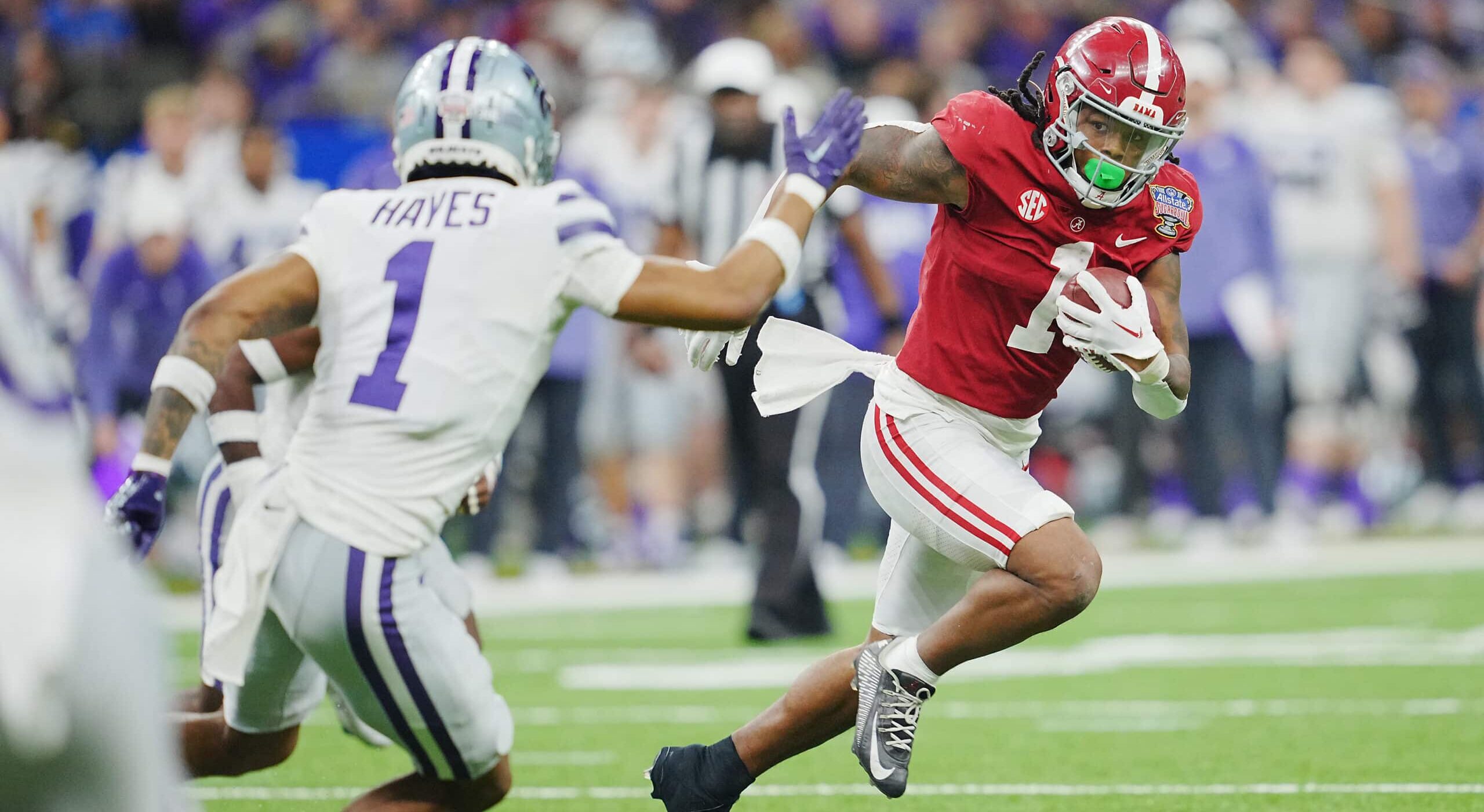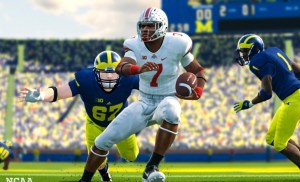The newest development in the lawsuit between a group licensing agency called The Brandr Group and Electronic Arts over the future EA College Football Game could potentially delay the game’s release date.
The Brandr Group has filed a request for a temporary restraining order that would prohibit EA from offering deals to schools and athletes at issue in the lawsuit. If The Brandr Group wins, they could file for an injunction — keeping EA from taking these actions until the lawsuit dispute is settled altogether.
In a statement to Front Office Sports, EA reiterated its plan to “bring back EA College Football in summer 2024.” The game’s delay, then, depends on the success of this motion, the duration of the lawsuit, and EA’s evolving plans.
Front Office Sports broke the news of the lawsuit, which was filed last week. In it, The Brandr Group claims EA is attempting to “circumvent” its exclusive contracts to negotiate group licensing deals on behalf of schools and athletes. The Brandr Group has negotiating rights for 54 schools who could be in the game, as well as athletes at these schools who have signed individual contracts to work with The Brandr Group, the company said in court documents.
While the lawsuit proceeds, The Brandr Group is now asking the court to halt or prevent EA from doing business with schools and athletes it believes are under its jurisdiction. That amounts to three requests, Boise State sports law professor Sam Ehrlich explained to FOS:
- EA must stop “soliciting” schools and athletes under Brandr’s jurisdiction to opt into the game
- Sever any existing partnerships that EA has with Brandr Group schools
- Refrain from signing contracts with athletes who The Brandr Group has jurisdiction over
The Brandr Group has declined to comment on matters of ongoing litigation. But in court documents, the company said: “Any potential (marginal) harm to EA Sports is far outweighed by the irreparable harm that will be prevented by protecting the contractual rights of TBG and its Partner Schools, and especially the interests of the Client Athletes who stand to miss out on fair compensation for their participation in the Game and immeasurable financial opportunities in the future given EA’s exclusivity requirements.”
EA filed its response on Tuesday evening, noting in a statement to FOS: “As we have said before, we believe the complaint does not have any merit, and this is no different.”
Court documents argued that The Brandr Group has no claim over any athletes. “Brandr asserts that granting an injunction is in the public interest because EA’s actions amount to ‘anticompetitive conduct,’” EA said in court documents. “But if anything, it is Brandr—not EA—that seeks to restrain student-athletes’ ability to contract freely. Brandr’s proposed injunction would frustrate student-athletes’ ability to make individual choices regarding whether they want to license their NIL rights and be included in EA’s game.”
If The Brandr Group ultimately wins an injunction, the game could be delayed, Ehlrich and sports attorney Mit Winter agreed. However, that depends on a couple factors.
First, the duration of the lawsuit: EA said in court documents that while it has encouraged schools to opt in by June 30, it’s not a requirement. EA also hasn’t begun the athlete opt-in process — it won’t be sure which athletes will be eligible for the game until spring of 2024, as the game will be based on the 2024-25 season. If the lawsuit isn’t settled by the spring of 2024, EA could have a problem.
Second, whether EA feels it needs the schools and athletes in The Brandr Group’s jurisdiction, or if it wants to simply go ahead without them. And third, whether EA throws up its hands altogether, and decides to make the game without any players at all.
Though the lawsuit is about jurisdiction over athlete negotiations, rather than fair compensation, it comes on the heels of The Brandr Group and others criticizing reported terms of the EA deal.
EA told The Athletic it hasn’t finalized the terms of the deals. But reports suggest they would amount to about $500 per player and no royalties — along with strict exclusivity agreements for athletes. While it’s common practice to offer all athletes the same amount of money, athletes’ earnings would be far below industry standard given that all video games offer participating characters recurring royalty checks.






![[Subscription Customers Only] Jun 15, 2025; Seattle, Washington, USA; Botafogo owner John Textor inside the stadium before the match during a group stage match of the 2025 FIFA Club World Cup at Lumen Field.](https://frontofficesports.com/wp-content/uploads/2026/02/USATSI_26465842_168416386_lowres-scaled.jpg?quality=100&w=1024)
![[Subscription Customers Only] Jul 13, 2025; East Rutherford, New Jersey, USA; Chelsea FC midfielder Cole Palmer (10) celebrates winning the final of the 2025 FIFA Club World Cup at MetLife Stadium](https://frontofficesports.com/wp-content/uploads/2026/02/USATSI_26636703-scaled-e1770932227605.jpg?quality=100&w=1024)










